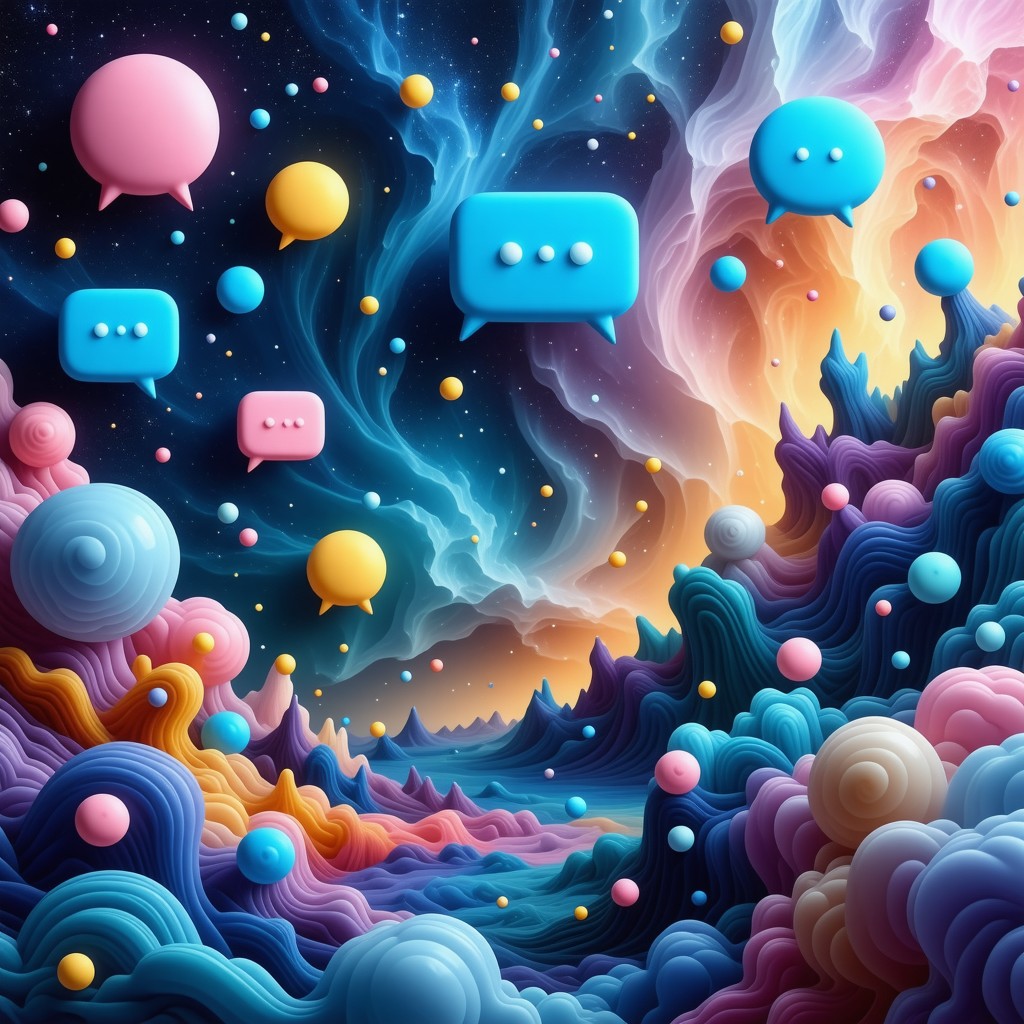Key Takeaways
- Safety First: Understanding the risks of Messenger bots is crucial; protect your personal data to prevent privacy breaches and identity theft.
- Earnings Potential: Messenger bots can generate revenue through lead generation, e-commerce integration, and subscription services.
- Identifying Bots: Recognize signs of Facebook Messenger bots to avoid scams, including high activity levels and repetitive responses.
- Effective Design: The success of a Messenger bot hinges on quality design and integration, ensuring it meets user needs while enhancing engagement.
- Best Practices: Implement strategies like clear objectives and regular updates to optimize the performance of your Messenger bot.
In the rapidly evolving digital landscape, understanding the intricacies of technology is essential, especially when it comes to tools like Messenger bots. This comprehensive Messenger bot review will delve into critical aspects such as safety, earnings potential, and legitimacy, providing you with the insights needed to navigate this innovative realm. Are Messenger bots safe? How can they help you earn money? What exactly does a Messenger bot do in everyday applications? Throughout this article, we will explore these questions and more, including how to identify bots on Facebook Messenger and distinguish between legitimate bots and potential scams. Additionally, we will evaluate whether investing in a Messenger bot is worth it in 2023, supported by user experiences and expert opinions. Join us as we uncover the truth behind Messenger bots, ensuring you are well-informed and equipped to make the best decisions for your digital interactions.
Are Messenger bots safe?
When considering the safety of Messenger bots, it’s essential to understand the potential risks associated with sharing personal information. Here are key points to consider:
Understanding Messenger bot security features
Messenger bots come equipped with various security features designed to protect user data and enhance safety during interactions. However, users must remain aware of the limitations and potential vulnerabilities:
- Data Privacy Risks: Sharing personal details with Messenger bots can lead to significant privacy concerns. If the bot’s database is compromised, malicious actors could exploit this information for identity theft, stalking, or targeted phishing attacks. According to a report by the Federal Trade Commission (FTC), personal data breaches can have severe consequences for individuals, including financial loss and emotional distress.
- Limited Control Over Data: Users often have limited control over how their data is used once shared with a chatbot. Many bots operate under privacy policies that may not fully protect user information. It’s crucial to review the privacy policies of the service provider to understand how your data will be handled.
- Vulnerability to Manipulation: Even seemingly innocuous information can be pieced together to create a profile that may be used for manipulation or exploitation. A study published in the Journal of Cybersecurity found that even basic data points can be leveraged to craft convincing social engineering attacks.
- Security Measures: While many Messenger bots implement security measures such as encryption, these protections are not foolproof. Users should be cautious and avoid sharing sensitive information, such as financial details or personal identifiers, with any chatbot.
- Best Practices for Safe Interaction: To enhance your safety while using Messenger bots:
- Avoid sharing personal information unless absolutely necessary.
- Use bots from reputable companies with strong privacy policies.
- Regularly review your privacy settings on the platform.
In conclusion, while Messenger bots can provide convenience and efficiency, users must remain vigilant about the information they share. By understanding the risks and following best practices, you can mitigate potential dangers associated with these digital tools. For further reading on data privacy and chatbot safety, refer to resources from the Electronic Frontier Foundation and the FTC.
Common risks associated with Messenger bots
While Messenger bots offer numerous benefits, they also come with inherent risks that users should be aware of:
- Phishing Attacks: Cybercriminals may create fake Messenger bots to trick users into providing sensitive information. Always verify the authenticity of the bot before engaging.
- Malware Distribution: Some bots may inadvertently or deliberately distribute malware. Avoid clicking on suspicious links or downloading files from unknown sources.
- Data Breaches: As mentioned earlier, data breaches can expose personal information. It’s vital to choose bots that prioritize user security and have robust data protection measures in place.
- Misleading Information: Bots may provide inaccurate or misleading information. Always cross-check critical information from reliable sources.
By understanding these common risks, users can make informed decisions about their interactions with Messenger bots. For more insights on how Messenger bots work and their security features, explore our features of Messenger bot.

Is a Messenger Bot Can Earn Money?
Yes, a Messenger bot can earn money through various monetization strategies. Here are some effective methods:
- Lead Generation: Messenger bots can capture leads by engaging users in conversations, collecting their contact information, and qualifying them for sales. This can significantly enhance conversion rates.
- E-commerce Integration: Businesses can integrate Messenger bots with their e-commerce platforms to facilitate transactions directly within the chat. This allows users to browse products, receive recommendations, and make purchases seamlessly.
- Subscription Services: Bots can offer subscription-based services, providing users with exclusive content, products, or services for a recurring fee. This model is particularly effective for businesses in sectors like fitness, education, and entertainment.
- Affiliate Marketing: By promoting third-party products or services, Messenger bots can earn commissions on sales generated through their recommendations. This requires strategic partnerships and effective marketing tactics.
- Customer Support: Providing automated customer support through Messenger bots can reduce operational costs and improve customer satisfaction. By enhancing user experience, businesses can increase retention and sales.
- Advertising: Messenger bots can also serve ads to users, generating revenue through sponsored messages or partnerships with brands looking to reach specific audiences.
According to a report by Business Insider, the global chatbot market is expected to reach $1.34 billion by 2024, indicating a growing opportunity for monetization through Messenger bots. Additionally, a study by Juniper Research found that chatbots could save businesses over $8 billion annually by 2022 through improved customer service and operational efficiency.
In conclusion, Messenger bots can be a lucrative tool for businesses when utilized effectively, leveraging various monetization strategies to generate revenue while enhancing customer engagement.
Exploring Income Potential with Messenger Bots
The income potential with Messenger bots is vast, especially as businesses increasingly adopt automation for customer engagement. Here are some insights into how Messenger bots can drive revenue:
- Increased Sales: By integrating with e-commerce platforms, Messenger bots can facilitate direct sales, allowing customers to make purchases without leaving the chat interface. This seamless experience can lead to higher conversion rates.
- Enhanced Customer Engagement: Engaging users through personalized interactions can lead to repeat business. Messenger bots can send reminders, follow-ups, and personalized offers, driving customer loyalty and increasing lifetime value.
- Cost Efficiency: Automating customer support and marketing tasks can significantly reduce operational costs. Businesses can allocate resources more effectively, focusing on strategic growth while the bot handles routine inquiries.
- Data-Driven Insights: Messenger bots can collect valuable data on customer preferences and behaviors. This information can be used to refine marketing strategies, leading to more targeted campaigns and improved ROI.
As the landscape of digital communication evolves, the potential for Messenger bots to generate income continues to grow. For those interested in exploring these opportunities, explore Messenger Bot capabilities to see how it can fit into your business strategy.
What Does a Messenger Bot Do?
A Messenger bot is an AI-driven tool designed to facilitate communication between businesses and their customers through Facebook Messenger. Its primary functions include:
- User Interaction: Messenger bots engage users in real-time conversations, providing instant responses to inquiries, which enhances customer satisfaction and retention.
- Lead Qualification: By asking targeted questions, Messenger bots can gather essential user information such as preferences, contact details, and specific needs. This process helps businesses identify and qualify leads effectively.
- Data Collection: Messenger bots can collect valuable data that businesses can analyze to understand customer behavior and preferences, allowing for more personalized marketing strategies.
- Automated Customer Support: These bots can handle common customer service inquiries, providing answers to frequently asked questions and resolving issues without human intervention, thus saving time and resources.
- Integration with CRM Systems: Messenger bots can be integrated with Customer Relationship Management (CRM) systems to streamline data management and follow-up processes, ensuring that sales teams have access to up-to-date information.
- Marketing Automation: Businesses can use Messenger bots to send targeted promotions and updates, enhancing engagement and driving sales.
According to a report by Gartner, by 2025, 75% of customer service interactions will be powered by AI, highlighting the growing importance of tools like Messenger bots in modern business strategies. For more insights on best practices for implementing Messenger bots, refer to resources from HubSpot and the official Facebook Messenger page.
How Messenger Bot Works in Everyday Applications
Messenger bots operate by utilizing artificial intelligence to automate interactions across various platforms. They can be deployed in numerous everyday applications, enhancing user experience and operational efficiency. Here are some common use cases:
- E-Commerce Support: Messenger bots can assist customers in navigating online stores, answering product-related questions, and facilitating purchases directly through Messenger.
- Appointment Scheduling: Businesses can use Messenger bots to allow customers to book appointments, reducing the need for manual scheduling and improving customer convenience.
- Feedback Collection: After a service interaction, Messenger bots can automatically request feedback from users, helping businesses gather insights to improve their offerings.
- Event Promotion: Messenger bots can send reminders and updates about upcoming events, ensuring that users stay informed and engaged.
By integrating these functionalities, Messenger bots not only streamline communication but also enhance overall customer engagement, making them an invaluable tool for businesses in 2023.
Messenger Bot for Personal Account: Use Cases and Benefits
Using a Messenger bot for personal accounts can significantly enhance communication efficiency. Here are some key benefits and use cases:
- Personalized Communication: Messenger bots can tailor responses based on user preferences, making interactions more relevant and engaging.
- Time Management: Automating routine tasks such as reminders or follow-ups can save time, allowing users to focus on more important activities.
- Enhanced Social Engagement: Bots can help manage social interactions by responding to messages promptly, ensuring that users maintain active communication with friends and family.
- Information Retrieval: Messenger bots can quickly provide information on various topics, from news updates to weather forecasts, directly within the chat interface.
By leveraging these capabilities, users can enjoy a more streamlined and efficient communication experience on their personal accounts, showcasing the versatility of Messenger bots.
How to Tell if Someone is a Bot on Facebook Messenger?
Identifying whether someone is a bot on Facebook Messenger can be crucial for maintaining genuine interactions. Here are some key signs that indicate you might be dealing with a Facebook Messenger bot:
Signs that Indicate a Facebook Messenger Bot
1. **High Activity Levels**: Bots often exhibit abnormally high activity, such as sending multiple messages or comments in rapid succession. This behavior is atypical for human users, who generally have more varied interaction patterns.
2. **Content Quality**: If the messages primarily consist of links to spam websites or contain little to no meaningful content, this is a strong sign of a bot. Genuine users typically engage in more thoughtful conversations.
3. **Repetitive Responses**: Bots frequently provide scripted or repetitive answers. If you notice that the responses are identical or follow a predictable pattern, it is likely that you are interacting with a bot.
4. **Lack of Personalization**: Bots usually fail to personalize their messages. If the responses do not address specific questions or seem generic, this can indicate automated behavior.
5. **Response Time**: Bots can respond almost instantaneously, while human users may take longer to reply. If the response time is consistently very quick, it could be a sign of a bot.
6. **Engagement Style**: Bots often lack the ability to engage in nuanced conversations. If the interaction feels one-dimensional or lacks depth, it may be a bot.
For further insights on identifying bots, you can refer to resources from cybersecurity experts and social media analysts, such as the Federal Trade Commission (FTC) guidelines on online interactions and studies from reputable tech journals.
Tools and Methods for Identifying Bots on Messenger
To enhance your ability to identify bots on Facebook Messenger, consider utilizing the following tools and methods:
– **Bot Detection Software**: There are various software solutions available that can analyze message patterns and flag potential bots. These tools often use machine learning algorithms to detect unusual activity.
– **User Reports**: Facebook allows users to report suspicious accounts. If multiple users report the same account as a bot, it’s likely that the account is indeed automated.
– **Engagement Analysis**: Look at the engagement metrics of the account. Bots typically have high message output but low interaction quality. If an account has many followers but minimal engagement, it may be a bot.
– **Third-Party Reviews**: Check platforms like Reddit or forums dedicated to Facebook Messenger for discussions about specific accounts. Users often share their experiences and insights about potential bots.
By leveraging these tools and methods, you can better navigate your interactions on Facebook Messenger and distinguish between genuine users and automated bots. For more information on how Messenger bots work and their functionalities, explore our features of Messenger Bot.

Is a Bot a Scammer?
Understanding whether a bot is a scammer involves distinguishing between legitimate bots and those designed to deceive users. While many bots serve beneficial purposes, such as automating customer service or providing information, some are created with malicious intent. Recognizing the difference is crucial for maintaining online safety.
Distinguishing Between Legitimate Bots and Scams
Legitimate bots, like those used in customer service, are programmed to assist users efficiently. In contrast, scam bots are designed to exploit vulnerabilities. Bot fraud refers to various types of online fraud executed or facilitated by these malicious bots, often referred to as scam bots. Here are some common types of bot fraud:
- Credential Stuffing: Bots use stolen credentials to gain unauthorized access to user accounts.
- Ad Fraud: Bots generate fake clicks or impressions on advertisements, leading to financial losses for advertisers.
- Fake Account Creation: Bots create numerous fake accounts on social media or e-commerce platforms, which can be used for spamming or spreading misinformation.
Scam bots often operate by scraping data from legitimate websites to create convincing phishing schemes. They can impersonate trusted entities, making it difficult for users to discern their authenticity. Users may fall victim to scams that result in financial loss, identity theft, or exposure to malware. The sophistication of these bots makes them a significant threat in the digital landscape.
How to Protect Yourself from Bot Scams on Messenger
To safeguard against bot scams, consider implementing the following preventive measures:
- Employ advanced security measures such as CAPTCHA and two-factor authentication to verify user identities.
- Utilize bot detection software to identify and block malicious bots.
- Regularly monitor account activity for any suspicious behavior.
While not all bots are scammers, understanding the nature of bot fraud is essential for protecting oneself online. For further reading, refer to resources from the Federal Trade Commission (FTC) on online scams and cybersecurity best practices, as well as reports from cybersecurity firms like Symantec and McAfee that detail the latest trends in bot-driven threats.
Are Chat Bots Worth It?
In 2023, the effectiveness of Messenger bots has become a pivotal topic for businesses looking to enhance customer engagement and streamline operations. As we evaluate their worth, it’s essential to consider both the advantages and disadvantages they present.
Evaluating the Effectiveness of Messenger Bots in 2023
Chatbots have revolutionized customer interaction, offering both advantages and disadvantages. Here’s a comprehensive analysis of their worth:
- Advantages of Chatbots:
- Instantaneous Responses: Chatbots provide immediate answers to customer inquiries, significantly reducing wait times. According to a study by HubSpot, 82% of consumers expect an immediate response when they have a sales question.
- 24/7 Availability: Unlike human agents, chatbots can operate around the clock, ensuring customers receive assistance at any time. This is particularly beneficial for global businesses with diverse time zones.
- Cost Efficiency: Implementing chatbots can lower operational costs. A report from Juniper Research estimates that chatbots will help businesses save over $8 billion annually by 2022 through reduced customer service costs.
- Disadvantages of Chatbots:
- Limited Understanding: While chatbots can handle straightforward queries, they often struggle with complex issues. A survey by PwC found that 59% of consumers feel companies have lost touch with the human element of customer experience.
- User Frustration: Poorly designed chatbots can lead to customer frustration, especially if they fail to understand user intent. This can result in negative brand perception.
- Implementation Considerations:
- Quality of Design: The effectiveness of a chatbot is heavily influenced by its design and the technology behind it. Utilizing advanced AI, such as natural language processing, can enhance user experience.
- Integration with Human Agents: A hybrid approach, where chatbots handle basic inquiries and escalate complex issues to human agents, can optimize customer service.
In conclusion, chatbots can be a valuable asset for businesses when implemented thoughtfully. They enhance customer engagement and operational efficiency but require careful design and integration to avoid pitfalls. For further insights, consider exploring resources from industry leaders like Forbes and HubSpot, which provide extensive research on chatbot effectiveness and best practices.
Messenger Bot Reviews: Insights from Users and Experts
Understanding the real-world performance of Messenger bots is crucial for businesses considering their implementation. User and expert reviews provide valuable insights into the effectiveness and reliability of these tools.
Many users have praised Messenger bots for their ability to streamline communication and improve customer service. Reviews on platforms like Messenger Bot Tutorials highlight features such as:
- Automated Responses: Users appreciate the quick responses that help maintain customer satisfaction.
- Lead Generation: Businesses report increased lead generation through engaging messaging strategies.
- Analytics: The detailed insights provided by Messenger bots allow companies to optimize their engagement strategies effectively.
However, some reviews also point out challenges, particularly regarding the limitations of chatbot understanding and the potential for user frustration. This feedback is essential for developers to enhance the user experience continually.
For a deeper dive into user experiences, consider checking out features of Messenger Bot and explore how it compares to other platforms through Brain Pod AI for additional AI-driven solutions.
How to create Messenger bot?
Creating a Messenger bot is a straightforward process that can significantly enhance your communication strategy. Here’s a step-by-step guide to help you get started.
Step-by-step guide on how to register Messenger bot
To register your Messenger bot, follow these steps:
- Set Up a Facebook Page: Ensure you have a Facebook Page for your business, as Messenger bots are linked to Facebook Pages.
- Access the Facebook Developer Portal: Go to the Facebook Developer Portal and create a new app.
- Choose Messenger as a Product: In your app settings, select Messenger to enable the Messenger platform.
- Generate a Page Access Token: This token allows your bot to communicate with users. Navigate to the Messenger settings in your app and generate the token linked to your Facebook Page.
- Set Up Webhooks: Configure webhooks to receive messages and events from users. This involves providing a callback URL and verifying your token.
- Test Your Bot: Use the Messenger app to test your bot’s functionality and ensure it responds as expected.
For a more detailed tutorial, check out our quick setup guide for messenger bots.
Best practices for developing a successful Messenger bot
To ensure your Messenger bot is effective and user-friendly, consider these best practices:
- Define Clear Objectives: Establish what you want your bot to achieve, whether it’s customer support, lead generation, or sales.
- Focus on User Experience: Design your bot to be intuitive. Use simple language and provide quick responses to enhance user engagement.
- Utilize AI Features: Leverage AI capabilities to personalize interactions and improve response accuracy. This can significantly enhance user satisfaction.
- Regularly Update Content: Keep your bot’s information current. Regular updates ensure users receive accurate and relevant information.
- Monitor Performance: Use analytics to track user interactions and identify areas for improvement. This data can help refine your bot’s performance over time.
For more insights on Messenger bot capabilities, visit our features of messenger bot page.




